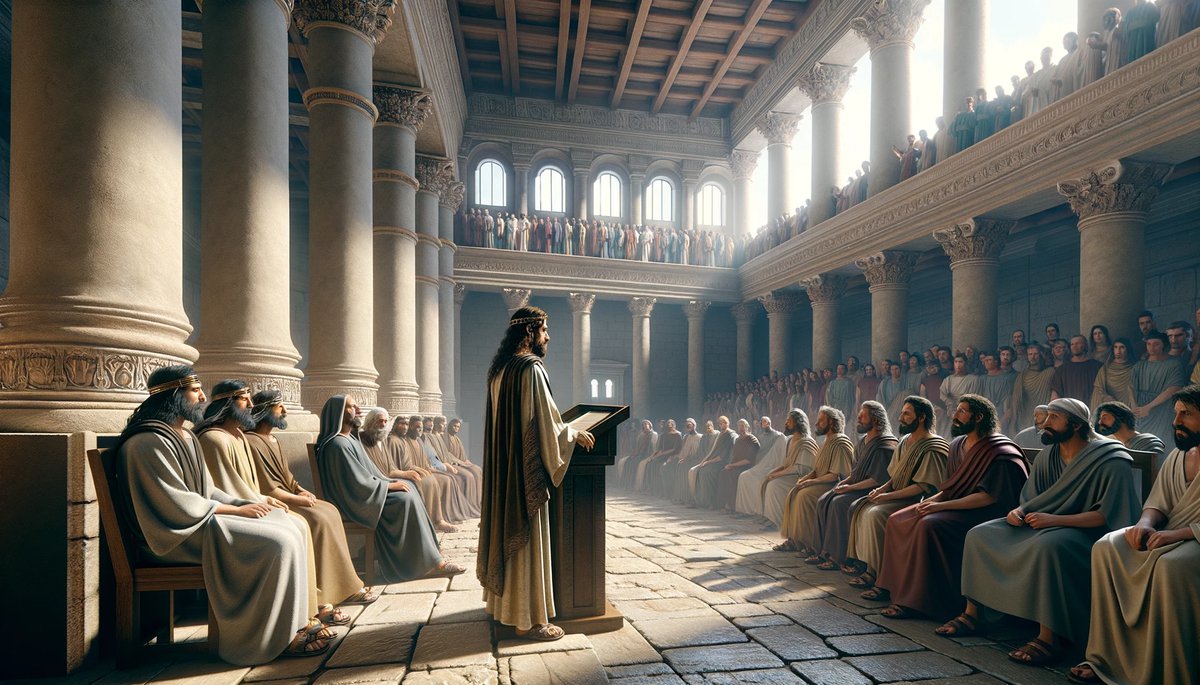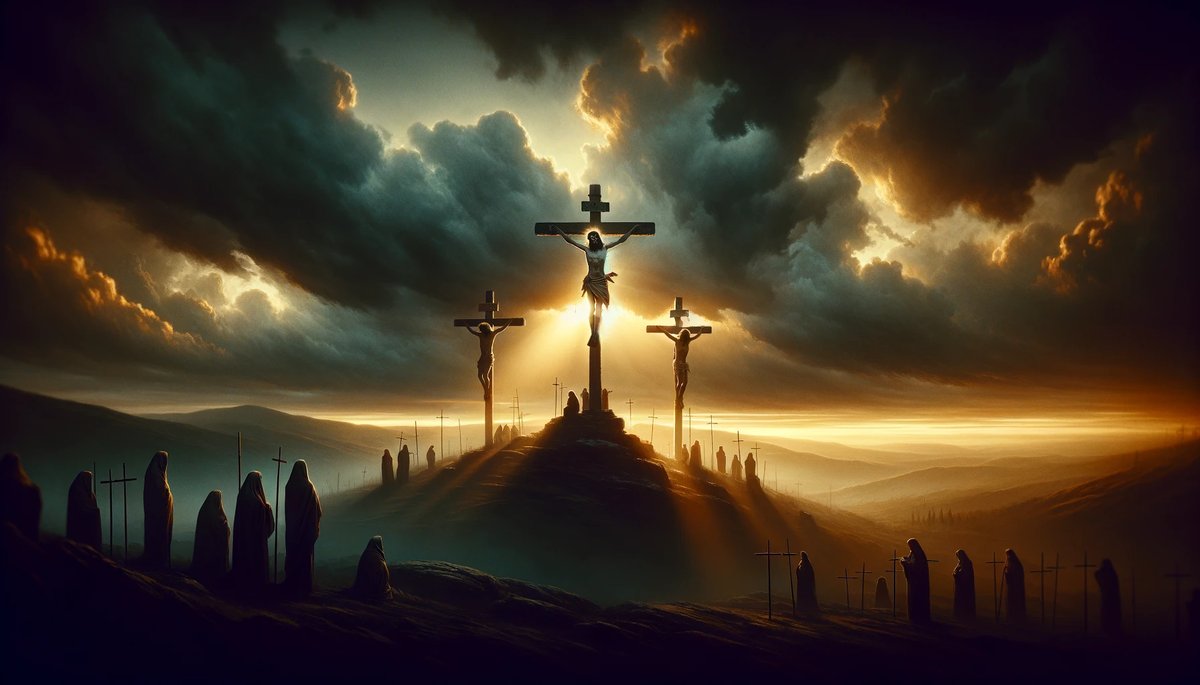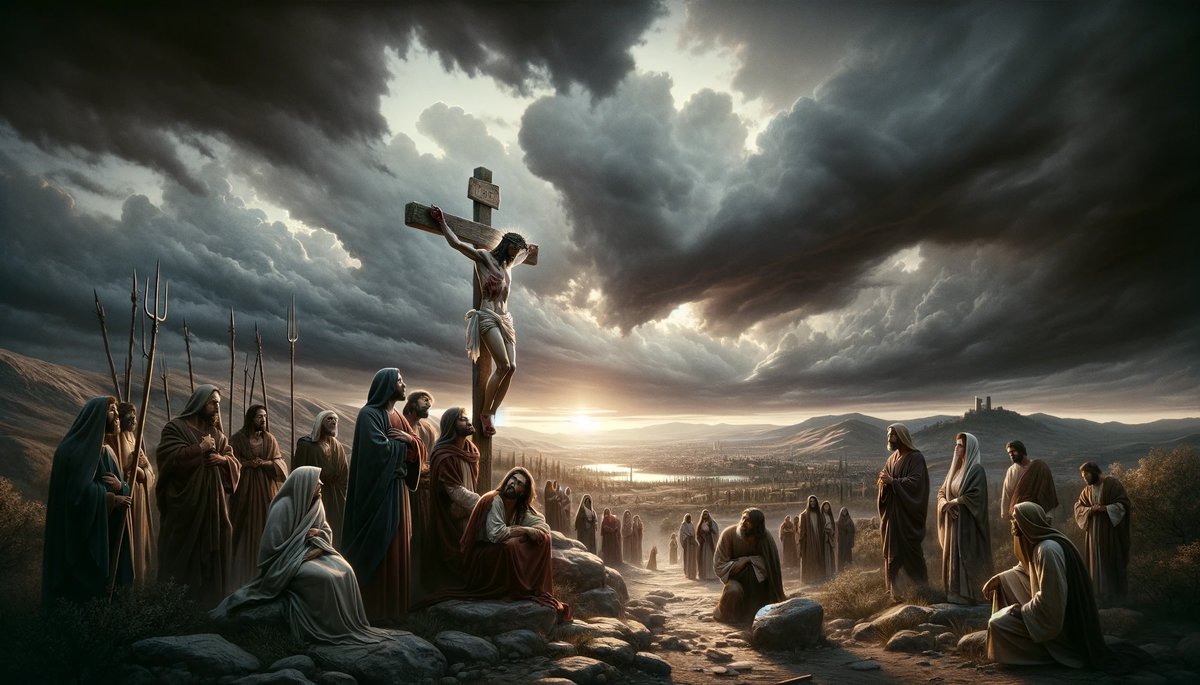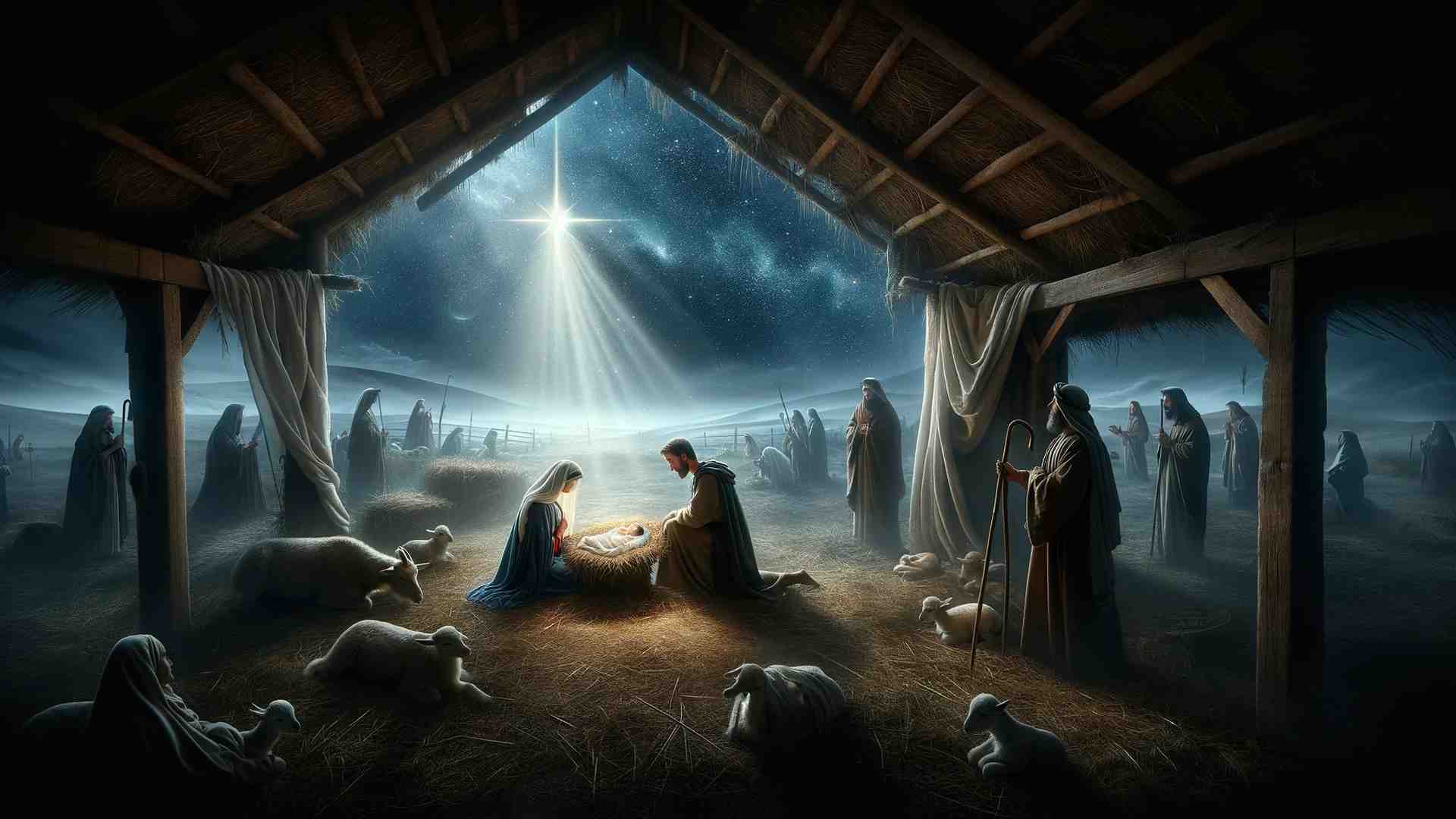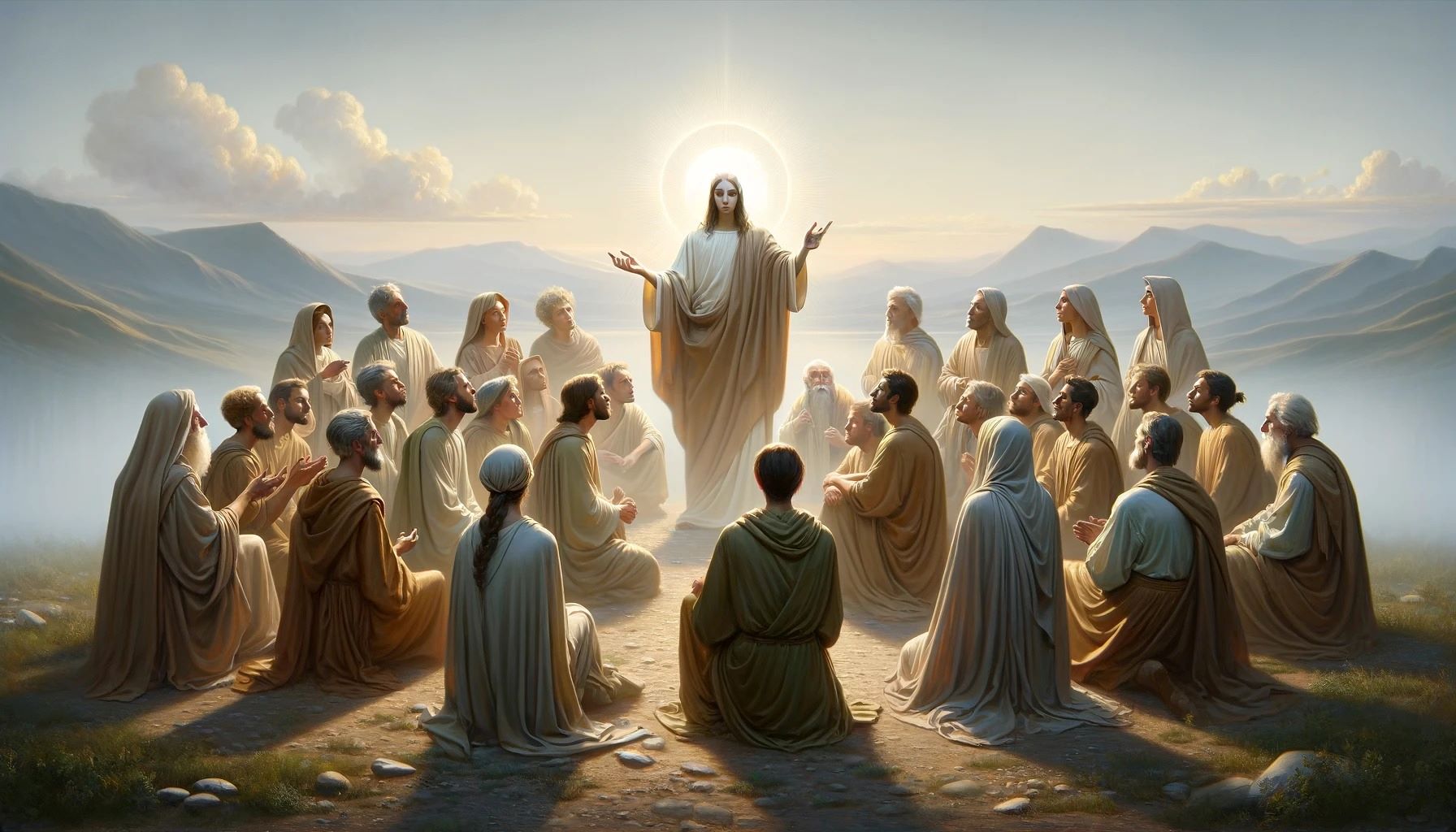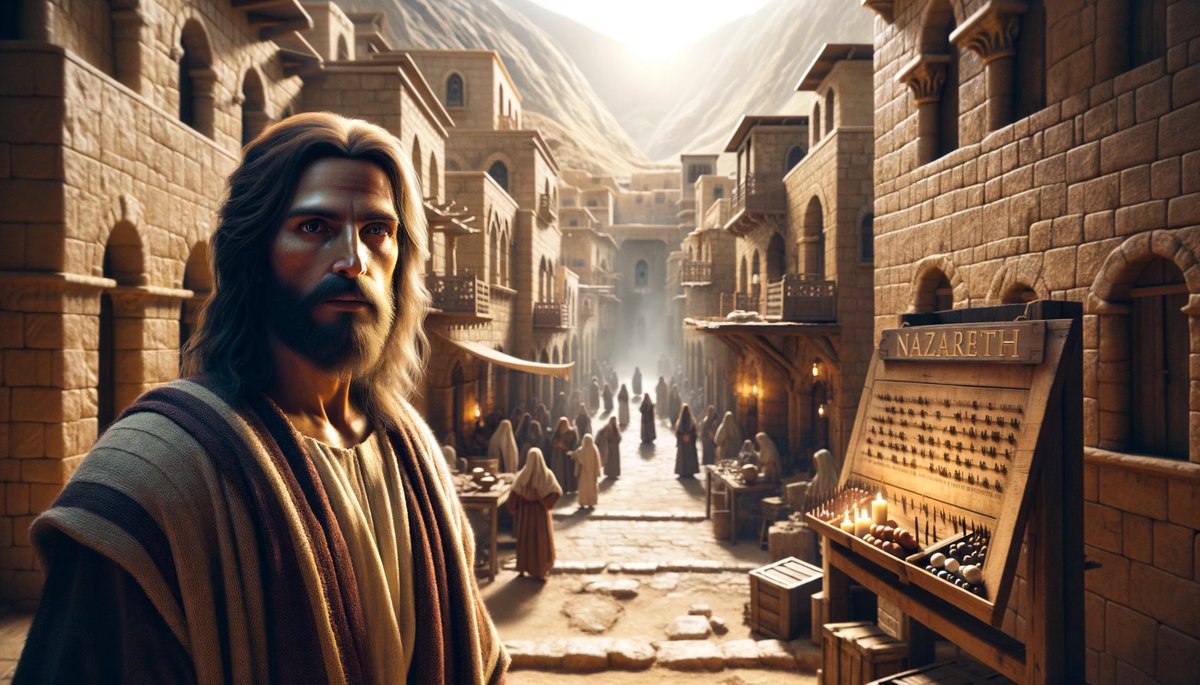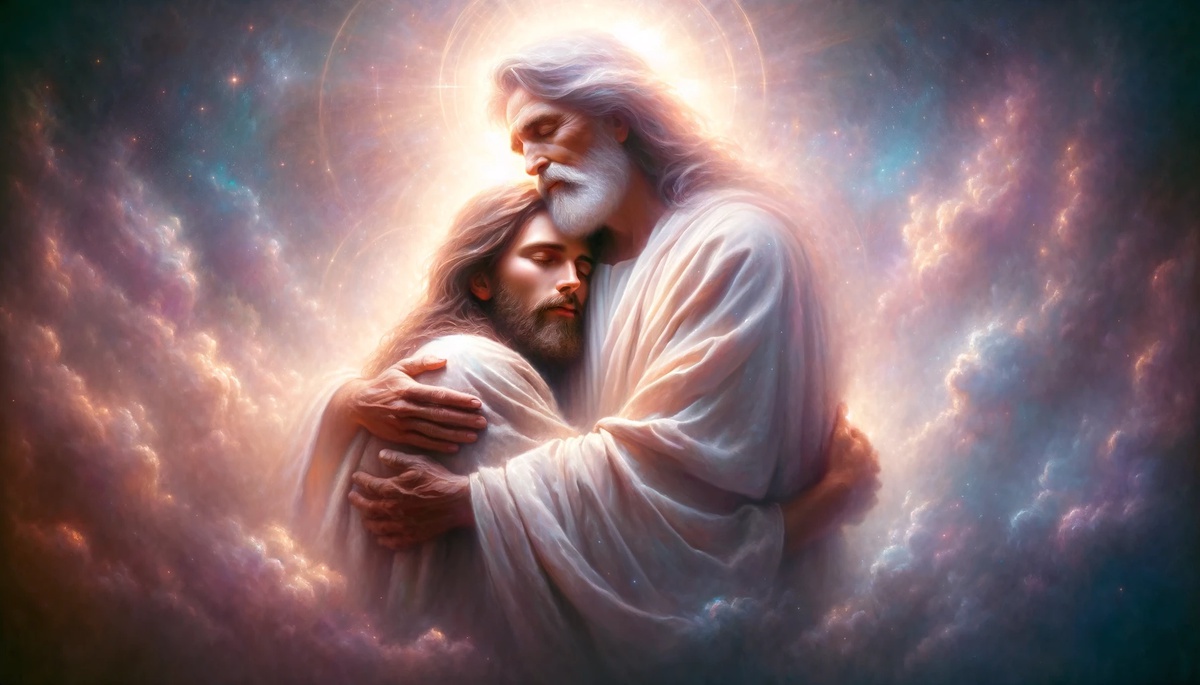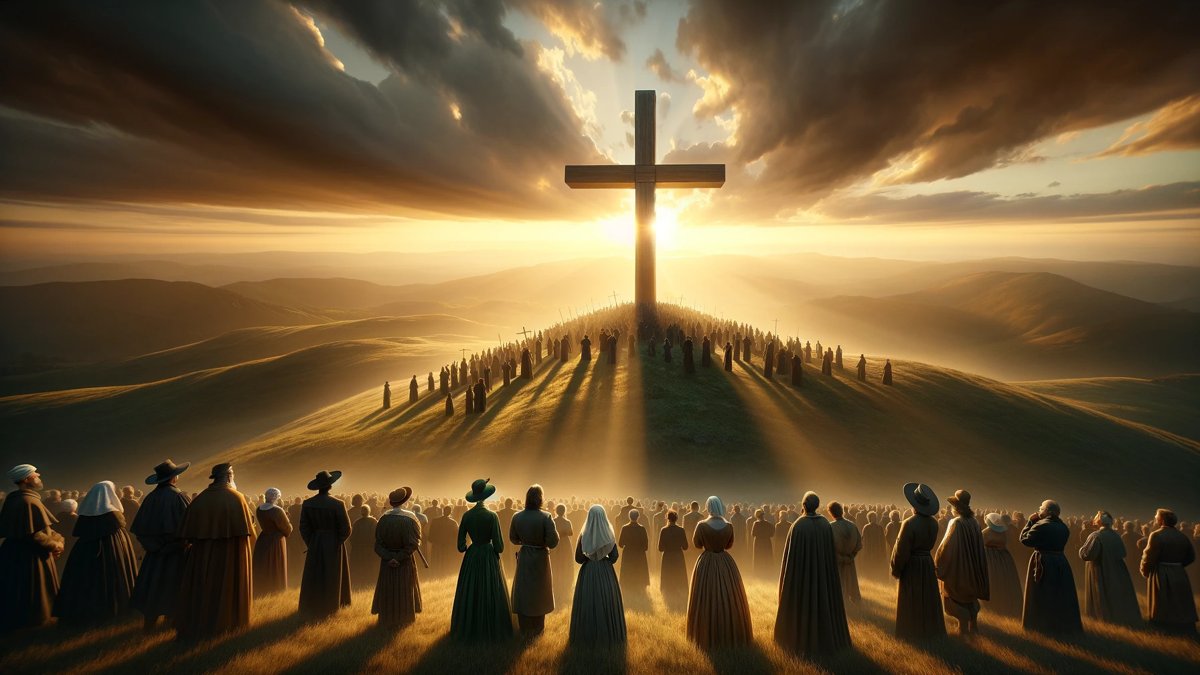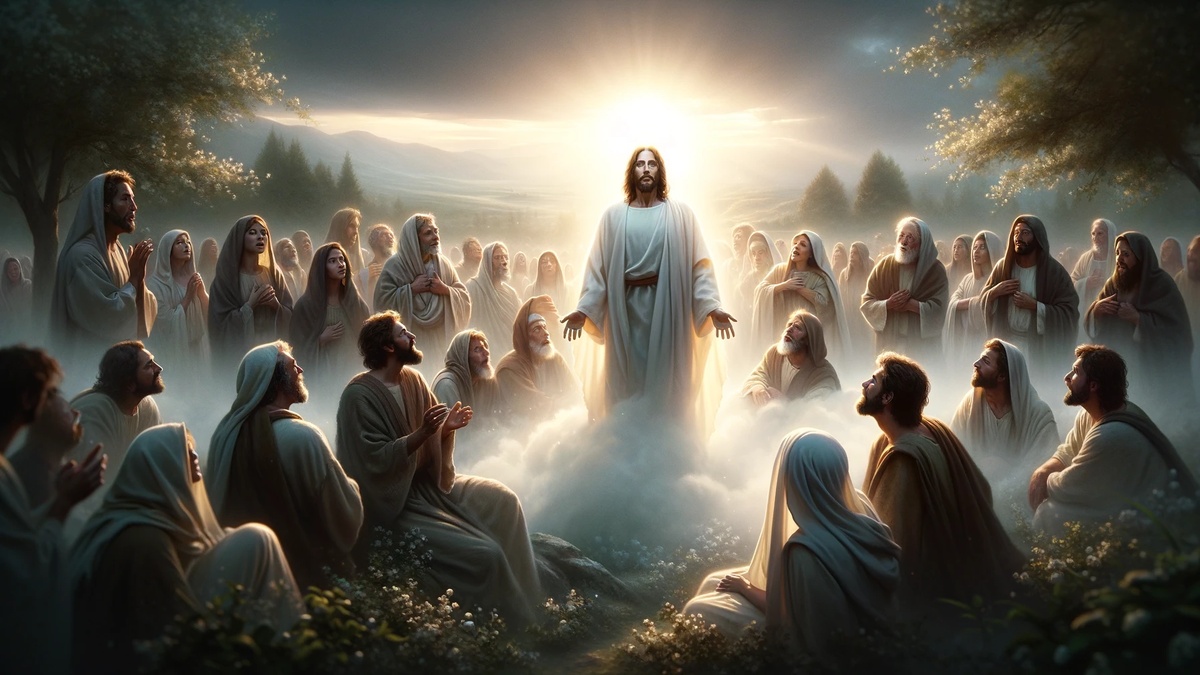Home>Christian Videos>Bible Stories>Why Was Jesus Christ Crucified
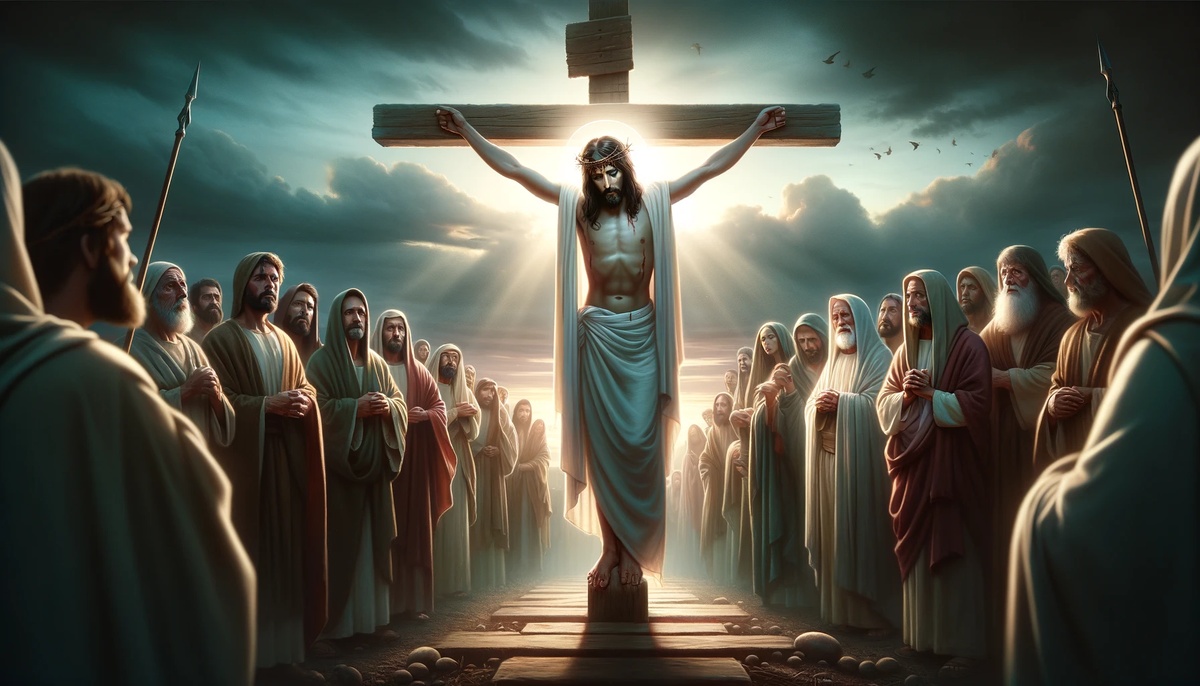

Bible Stories
Why Was Jesus Christ Crucified
Published: March 2, 2024
Jason DeRose, Managing Editor at Christian.net, uses his expertise in religion and journalism to deepen understanding of faith's societal impacts. His editorial leadership, coupled with a strong academic background, enriches the platform’s diverse content, earning him recognition in both journalism and religious circles.
Discover the biblical account of Jesus Christ's crucifixion and the reasons behind this pivotal event in Christian history. Explore the significance of this story in the Bible.
(Many of the links in this article redirect to a specific reviewed product. Your purchase of these products through affiliate links helps to generate commission for Christian.net, at no extra cost. Learn more)
Table of Contents
The Historical Context of Jesus' Crucifixion
The crucifixion of Jesus Christ is one of the most significant events in Christian history. It took place during the 1st century AD in the Roman province of Judea. At that time, Judea was under Roman rule, and the region was characterized by political unrest and religious tension. The Jewish people were longing for a messiah who would deliver them from Roman oppression, and this longing set the stage for the events leading to Jesus' crucifixion. The historical context of Jesus' crucifixion is crucial in understanding the religious and political dynamics that culminated in this pivotal event.
-
Roman Occupation: Judea was under the control of the Roman Empire, and the presence of Roman authority was deeply resented by many Jews. The Roman occupation brought with it heavy taxation, cultural clashes, and the suppression of Jewish religious practices. This created a volatile environment in which the people of Judea yearned for liberation and autonomy.
-
Religious Expectations: The Jewish people were steeped in religious expectations centered around the arrival of a messianic figure who would restore the glory of Israel. These expectations were rooted in the Hebrew Scriptures and fueled the hope for a leader who would lead the nation to freedom and spiritual renewal. The anticipation of a messiah was widespread, and it set the stage for the reception of Jesus and the events leading to his crucifixion.
-
Social Unrest: The socio-political landscape of Judea was marked by social unrest and religious fervor. Various factions and religious groups vied for influence and power, contributing to a climate of tension and division. This backdrop of societal upheaval played a significant role in the events that led to Jesus' crucifixion.
-
Role of Jewish Authorities: The religious leaders of the time, particularly the Pharisees and the Sadducees, held positions of influence within the Jewish community. Their interactions with Jesus, as well as their collaboration with the Roman authorities, were instrumental in the events that led to Jesus' crucifixion. The clash between Jesus and the religious establishment further exacerbated the existing tensions in Judea.
In summary, the historical context of Jesus' crucifixion is characterized by Roman occupation, religious expectations, social unrest, and the role of Jewish authorities. These factors converged to create an environment in which the crucifixion of Jesus became a pivotal moment in both religious and historical narratives.
Read more: What Time Was Jesus Christ Crucified?
The Religious and Political Motivations Behind Jesus' Crucifixion
The crucifixion of Jesus Christ was driven by a complex interplay of religious and political motivations that unfolded within the historical context of 1st century Judea. Understanding these motivations is essential in comprehending the significance of Jesus' crucifixion in Christian theology and the broader historical narrative.
Religious Motivations
-
Threat to Religious Authority: Jesus' teachings and actions posed a challenge to the religious establishment of his time. His criticism of the religious leaders and their practices threatened their authority and influence. This led to growing opposition and animosity towards Jesus, ultimately contributing to the decision to have him crucified.
-
Messiahship Claims: Jesus' assertion of being the long-awaited Messiah and Son of God was deeply unsettling to the religious leaders. His claims were perceived as blasphemous and heretical, leading to accusations of sedition and undermining the established religious order.
-
Doctrinal Conflict: Jesus' teachings diverged from traditional interpretations of Jewish law and theology, leading to doctrinal conflicts with the religious authorities. His emphasis on love, mercy, and inclusion challenged the rigid legalism of the religious elite, further exacerbating the tensions that culminated in his crucifixion.
Political Motivations
-
Threat to Roman Authority: The growing following of Jesus and the fervor surrounding his ministry raised concerns among the Roman authorities. The potential for Jesus to be hailed as a political leader or king posed a threat to Roman control in Judea, prompting Pontius Pilate to intervene and ultimately order Jesus' crucifixion to maintain order and Roman supremacy.
-
Maintaining Social Order: The political climate in Judea was volatile, with various factions vying for power and influence. Jesus' popularity and the fervent crowds following him posed a risk of civil unrest, prompting the Roman authorities to take decisive action to prevent potential uprisings and maintain social stability.
-
Collaboration with Jewish Leaders: The collaboration between the Roman authorities and certain Jewish leaders, who saw Jesus as a disruptive force, played a pivotal role in the events leading to his crucifixion. The convergence of political interests between the Roman rulers and certain factions within the Jewish religious establishment contributed to the decision to execute Jesus.
In summary, the crucifixion of Jesus Christ was motivated by a complex interplay of religious and political factors. The threat posed by Jesus' teachings and growing influence, coupled with the political dynamics of Roman rule and social stability, converged to culminate in the pivotal event of his crucifixion.
The Role of Pontius Pilate in Jesus' Crucifixion
Pontius Pilate, the Roman governor of Judea, played a pivotal role in the crucifixion of Jesus Christ. His decisions and actions during the trial and subsequent sentencing of Jesus had far-reaching implications for the unfolding of this significant event in Christian history.
-
Political Authority: As the Roman prefect in Judea, Pontius Pilate wielded significant political authority. His role involved maintaining Roman control, upholding law and order, and ensuring the stability of the region under Roman rule. Pilate's position as the highest-ranking Roman official in Judea granted him the power to make crucial decisions regarding matters of governance and justice.
-
Trial of Jesus: Pontius Pilate presided over the trial of Jesus, which took place within the political and religious backdrop of 1st century Judea. The accusations brought against Jesus by the religious leaders led to his appearance before Pilate, where he faced charges of sedition and claiming to be the King of the Jews. Pilate's handling of the trial and his interactions with Jesus would shape the outcome of the events that followed.
-
Political Calculations: Pilate's decision-making was influenced by political calculations aimed at maintaining Roman authority and preventing potential uprisings. The growing following of Jesus and the fervor surrounding his ministry raised concerns about the potential for political unrest. Pilate sought to navigate the delicate balance between appeasing the Jewish leaders, satisfying the Roman interests, and preventing civil disturbances.
-
Role in Sentencing: Despite finding no guilt in Jesus, Pontius Pilate succumbed to the pressure from the religious authorities and the crowd, ultimately sentencing Jesus to crucifixion. His reluctance to condemn Jesus was overshadowed by the political pressures and the fear of potential upheaval. Pilate's role in authorizing the crucifixion of Jesus underscored the intricate interplay between political expediency and the administration of justice.
-
Symbol of Roman Authority: Pontius Pilate's involvement in the crucifixion of Jesus symbolized the clash between Roman power and the figure of Jesus as a perceived threat to both religious and political establishments. His role as the representative of Roman governance in Judea positioned him at the center of the pivotal events that unfolded, leaving an indelible mark on the narrative of Jesus' crucifixion.
In essence, Pontius Pilate's role in the crucifixion of Jesus exemplifies the complex interplay of political authority, calculated decision-making, and the dynamics of Roman rule in Judea. His actions and the implications of his choices reverberate through the annals of Christian history, shaping the theological and historical significance of Jesus' crucifixion.
Read more: Where Was Jesus Christ Crucified At
The Crucifixion as a Fulfillment of Prophecy
The crucifixion of Jesus Christ is deeply intertwined with the concept of fulfillment of prophecy within Christian theology. The Hebrew Scriptures, particularly the Old Testament, contain numerous prophecies that are believed to foreshadow the coming of a messianic figure and the redemptive work that would be accomplished through him. In the narrative of Jesus' crucifixion, Christians perceive a profound connection between these ancient prophecies and the events surrounding the death of Jesus on the cross.
-
Prophetic Foretelling: The Old Testament contains a tapestry of prophecies that are seen as pointing to the suffering, death, and redemptive purpose of the Messiah. These prophecies encompass various aspects of the crucifixion, including the betrayal of the Messiah, his rejection by the people, and the manner of his death. One of the most well-known prophecies is found in Psalm 22, which vividly describes elements of the crucifixion, such as the piercing of hands and feet, the casting of lots for clothing, and the anguish of the sufferer.
-
Symbolic Fulfillment: The crucifixion of Jesus is viewed as the symbolic fulfillment of these ancient prophecies, underscoring the belief that Jesus was the promised Messiah who fulfilled the scriptural expectations. The alignment of specific details of Jesus' crucifixion with the prophetic utterances is seen as a testament to the divine orchestration of events and the overarching plan of redemption.
-
Redemptive Significance: The fulfillment of prophecy in the crucifixion is intricately linked to the redemptive purpose ascribed to Jesus' sacrificial death. Christians interpret the prophecies as not only foretelling the events of the crucifixion but also imbuing them with profound spiritual significance. The suffering and death of Jesus are seen as fulfilling the divine plan for the atonement of humanity's sins, bringing about reconciliation between God and humanity.
-
Theological Interpretation: The fulfillment of prophecy in the crucifixion serves as a cornerstone of Christian theology, emphasizing the continuity between the Old Testament promises and their realization in the person of Jesus. This theological framework underscores the belief in Jesus as the culmination of God's redemptive plan, as foretold by the prophets of old.
-
Faith Affirmation: For believers, the fulfillment of prophecy in the crucifixion serves as a powerful affirmation of faith, reinforcing the conviction that Jesus is the promised Messiah who fulfills the scriptural expectations. The recognition of the prophetic threads woven into the narrative of Jesus' crucifixion deepens the spiritual significance of this pivotal event in Christian belief.
In essence, the crucifixion of Jesus is perceived as the fulfillment of ancient prophecies, weaving together the threads of divine foreknowledge, redemptive purpose, and theological continuity. The recognition of the crucifixion as a fulfillment of prophecy underscores its profound significance within the framework of Christian faith and the narrative of God's redemptive work in human history.
The Significance of Jesus' Crucifixion in Christianity
-
Atonement and Redemption: The crucifixion of Jesus holds paramount significance in Christianity as it is intricately linked to the concept of atonement and redemption. According to Christian belief, Jesus' sacrificial death on the cross serves as the means through which humanity's sins are atoned for, and reconciliation with God is made possible. The shedding of Jesus' blood is seen as the ultimate act of love and grace, providing a path for believers to experience forgiveness and restoration of their relationship with God.
-
Victory Over Sin and Death: The crucifixion is viewed as the triumph of good over evil, and life over death. In Christian theology, Jesus' death on the cross is not a symbol of defeat, but rather a demonstration of his victory over the powers of sin and death. Through his crucifixion and subsequent resurrection, Jesus is believed to have conquered the forces that hold humanity in bondage, offering the promise of eternal life and salvation to those who embrace his message.
-
Exemplification of Love and Sacrifice: The crucifixion of Jesus serves as the ultimate example of selfless love and sacrificial giving in Christian teachings. Jesus' willingness to endure the agony of the cross, out of love for humanity, is held as a model of unconditional love and compassion. His act of laying down his life for others is revered as the epitome of sacrificial love, inspiring believers to emulate this spirit of selflessness in their own lives.
-
Foundation of Christian Faith: The crucifixion of Jesus forms the cornerstone of Christian faith, shaping the core beliefs and practices of the religion. The centrality of the cross in Christian symbolism and theology underscores the profound significance attributed to Jesus' sacrificial death. The crucifixion is not only a historical event but a spiritual focal point that encapsulates the essence of Christian faith, emphasizing the transformative power of Jesus' redemptive work.
-
Salvation and Eternal Life: Within Christian doctrine, the crucifixion is inseparable from the promise of salvation and the assurance of eternal life. The belief in Jesus as the savior who offers the gift of salvation through his crucifixion is fundamental to Christian faith. The crucifixion is seen as the means through which believers are granted the hope of eternal life, free from the burden of sin and the fear of spiritual separation from God.
In summary, the significance of Jesus' crucifixion in Christianity encompasses themes of atonement, victory, love, faith, and salvation. It stands as the defining moment that encapsulates the core tenets of Christian belief, shaping the spiritual identity and worldview of millions of adherents around the world.
